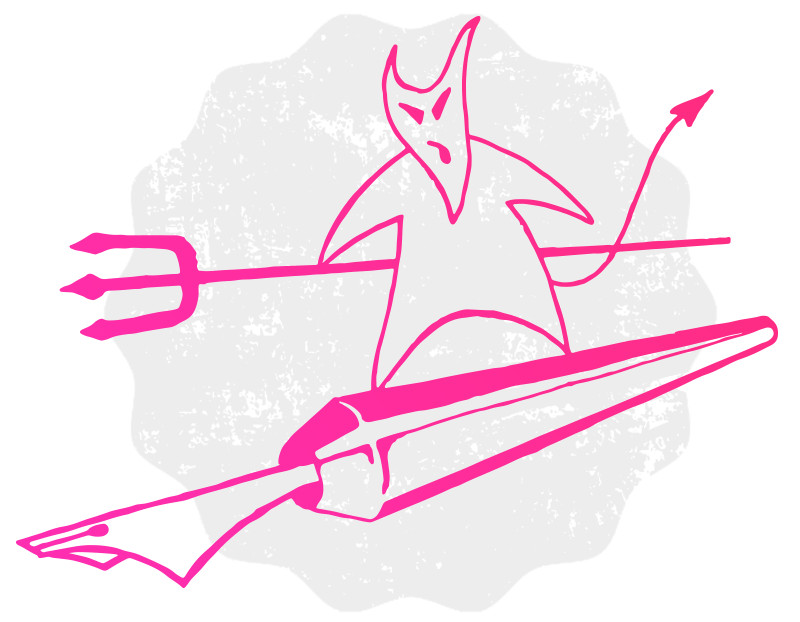Stephen King’s On Writing is half-memoir and half-instructional, and one of the first books I recommend to anyone seeking writing advice. King describes how he writes a first draft in three months—what he calls a season. I’m a writer with a full-time life and job and brushed the thought aside, that I could pull off a draft in such a short amount of time.
Wasn’t this endeavor better left to serious writers? Full-time writers? Writers with stacks of published works cluttering their desks? It took way longer than three months to write the first draft of my first novel. My internal demons got hold of that draft and grimly judged my work, groaning ghoulish “Mehs” and “Yawns” before floating into the hallows of time moaning, “Rewrite… rewrite… reeewriiiite…”
Then one day a writing coach seconded King’s method and put me up to the challenge. I hemmed and hawed before considering the workload mathematically. My last two manuscripts had both come in around 90k words; to match that, I’d have to write 1,000 words a day for ninety days. I’d already outlined the story, mapped out the plot, and thought out the characters. The entirety of the story paced around the inside of my head like a caged animal. I had to get it out. Committing to the amount of time it would take—close to a year, if I went by the timeline it took to me finish that first demon-shamed draft, felt daunting. I’d been spending my days editing one manuscript while promoting my first book and preparing to release an album—not to mention giving in to the demands of work and life. But this story, an espionage thriller, wouldn’t stop pacing in my head. I felt its claws grinding against my inner skull.
Before I knew it I put all other work aside and sat at my desk to create the manuscript’s master document, on August 1 of that year. Excitement propelled me through the first day’s 1k words, no problem there. The same amount poured out of me every day that week. Some days I cranked out 2k, 3k, even 5k one lazy Sunday as the rain poured outside. Days came when I wasn’t able to write—a doctor’s appointment, sleeping in late, the day I’d decided to give up writing completely (only to return to the page the next day)—and on those days I remembered the 3k I banked the day before and forgave myself for being a human with a life. But the demons circled me with hollow chants of, “You’ll never finish. You’re a haaaaaackkkk!”
I put on demon-blocking blinders and chained myself to my desk. Soon I made it to the 30k word mark, on schedule. Meeting my daily word count became all-consuming. I couldn’t be stopped. I counted my progress in k’s: 30k, 40k, 50k 60k.
Then I hit the dreaded wall and my personal demons crushed me against it. The story meandered too much for my liking. I questioned every word I wrote—does this chapter really belong? Did I waste four days writing drivel that I’d cut later? One day’s progress felt like all backstory, even prequel material. Would I be able to work it in, or would I ditch it completely? Were any of the words I’d committed to the page anything other than useless, meandering nonsense?
I pushed through this infernal chorus of ghoulish shame until I crossed the 80k threshold. This was towards the end of October. 81k came, then 84k, then 87k. The finish line was in sight! On Halloween day I wrote the final sentence, hit ‘save,’ then fell to the floor in exhaustive accomplishment as the demons convened to critique the draft.
I pushed through this infernal chorus of ghoulish shame until I crossed the 80k threshold. This was towards the end of October. 81k came, then 84k, then 87k. The finish line was in sight! On Halloween day I wrote the final sentence, hit ‘save,’ then fell to the floor in exhaustive accomplishment as the demons convened to critique the draft.
“Meh,” came their fiendish howls. “It’s not Carrie,” one screeched. “It’s not IT, but it’s not bad,” another wailed. A third moaned, “You’ve done the term vomit draft a disserrrrrviiiiiice.” The demons went on slashing my draft with red ink pens, but they couldn’t slash my sense of accomplishment. I’d done it, and no matter what I’d written or how badly I’d written it, it was my story, on the page, and no longer a lurking presence clawing at the inside of my skull for release.
Some people take years to write a first draft. Some write them in a fit of inspiration in a few weeks. Three months feels like a good mid-point to strive for if you’ve got the drive and determination. I’ll definitely use this technique in the future when I can’t hold a story in any longer. But maybe I’ll time my next draft’s completion with Easter instead of Halloween. My critics will be fluffier, and cuter, and might even reward my efforts with candy.

Jon Hébert is an artist, writer, photographer, web and graphic designer, and jewelry maker based in New Orleans, Louisiana. Aside from living and promoting the creative life, Jon helps music industry professionals overcome struggles with bothersome tinnitus through mindfulness meditation workshops (in partnership with the New Orleans Musicians Assistance Foundation).

